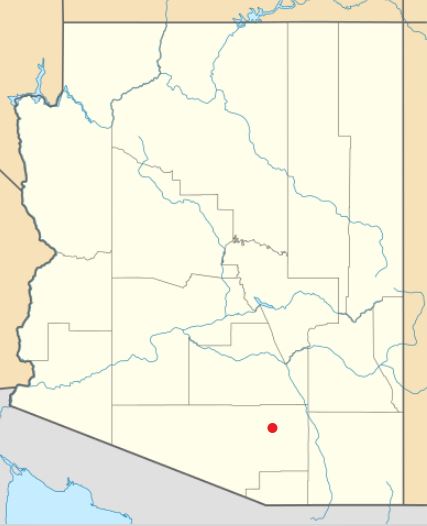Tucson Water is dedicated to reducing water consumption; this includes specific water conservation ordinances. By codifying these water conservation strategies into law, Tucson’s Mayor and Council have ensured that these policies will remain active and enforceable for many years to come.
The City of Tucson recognizes their water resource challenges and passed the first commercial rainwater harvesting ordinance in the country to meet the growing demands of their community.
 Currently, outdoor usage makes up almost 45 percent of all water usage in the city. The City of Tucson’s Commercial Rainwater Harvesting Ordinance No. 10597 is the first regulation of its kind to require developers of commercial properties to harvest rainwater for at least 50 percent of their landscaping needs within three years.
Currently, outdoor usage makes up almost 45 percent of all water usage in the city. The City of Tucson’s Commercial Rainwater Harvesting Ordinance No. 10597 is the first regulation of its kind to require developers of commercial properties to harvest rainwater for at least 50 percent of their landscaping needs within three years.
The overarching intent of the ordinance is to reduce potable water consumption through the use of Rain Water Harvesting practices and techniques. Accompanying the ordinance is the Development Standard that provides clear implementation guidance, clarifies key compliance and submittal requirements, and provides the foundation necessary to meet the ordinance’s requirement.
This program’s success is largely attributed to the support of Councilman Rodney Glassman who proposed the measure and encouraged the formation of a stakeholder group of key water interests to analyze the issues and craft language for the ordinance requirements. An Advisory Panel was assembled to create the Development Standard that details how the ordinance requirements will be achieved.
Water conservation is generally supported in Tucson, and water harvesting, in particular, is already common at the residential level. Funds from the conservation program fee assessed to all water customers are used to set up demonstration sites and develop educational materials, which help subsidize costs for developers, encourage early adoption and experimentation, and garner support.
The Tucson harvesting ordinance allows for a passive collection system, primarily diverting runoff from parking lots and roofs, as well as small harvesting combined with pumps and drip irrigation.
The Tucson City Council has also approved an additional Greywater Ordinance that requires new homes to have separate drain lines installed at the time of construction to facilitate the use of greywater by subsequent homeowners. The typical greywater system diverts water from sinks, showers, and other appliances to the homeowner’s landscape, further reducing potable water demands for this consumptive use.
Case Study Resources
Downloaded from ResilientWest.org
a project of
Resilient Communities and Watersheds
POST A CASE STUDY


 Currently, outdoor usage makes up almost 45 percent of all water usage in the city. The City of Tucson’s Commercial Rainwater Harvesting Ordinance No. 10597 is the first regulation of its kind to require developers of commercial properties to harvest rainwater for at least 50 percent of their landscaping needs within three years.
Currently, outdoor usage makes up almost 45 percent of all water usage in the city. The City of Tucson’s Commercial Rainwater Harvesting Ordinance No. 10597 is the first regulation of its kind to require developers of commercial properties to harvest rainwater for at least 50 percent of their landscaping needs within three years.